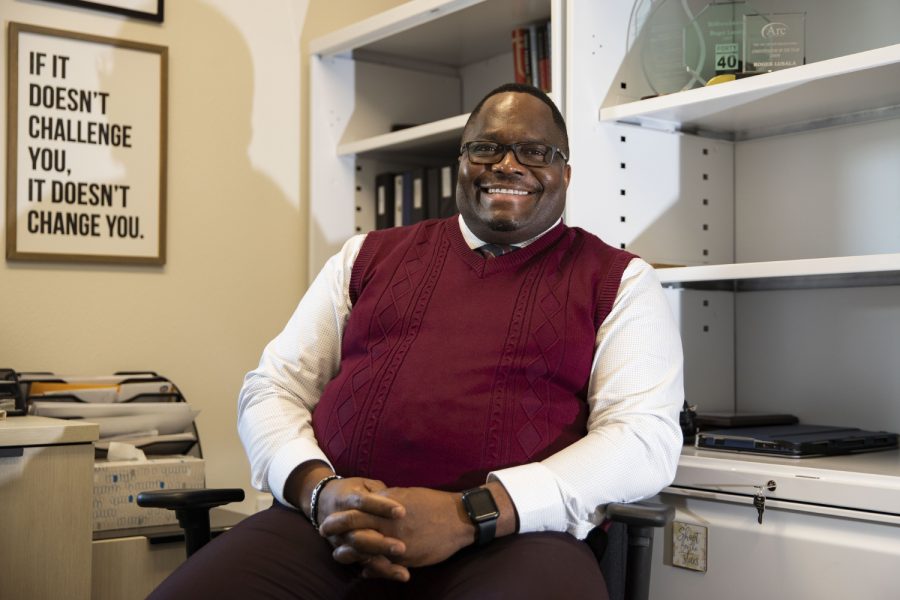Human Rights Commission’s new leadership speaks on future of social justice in Iowa City
The chair and vice chair for Iowa City’s Human Rights Commission speak on their new positions and plans for the future of social justice and racial equity in Iowa City
President and CEO at MYEP Roger Lusala poses for a portrait on Monday, Dec. 14, 2020 in his office at MYEP.
February 12, 2023
The newly elected Iowa City Human Rights Commission chair and vice chair are pushing for improvements to affordable housing and grant programs for Iowa City residents and businesses.
The Iowa City Human Rights Commission elected Roger Lusala, the president and CEO of the Mayor’s Youth Empowerment Program, as its chair and Sylvia Jons as vice chair Jan. 24.
The Iowa City City Council appoints nine members for the Human Rights Commission to serve for three years. The commission’s responsibility is to educate the public on illegal discrimination and civil rights and advise policy changes to the Iowa City City Council.
Lusala said he was emboldened to join the commission in 2021 after the killing of George Floyd in May 2020.
“I wanted to be more on the front end of really pushing for change and implementing change,” Lusala said.
The Human Rights Commission has been working on its own strategic plan, which is separate from the city council and is currently being implemented. The plan has three areas of focus to improve community engagement.
“We have so many nonprofits in Iowa City addressing racial equity and social justice issues, so we want to be a resource for those organizations,” he said. “We want those organizations to come to us so we can collaborate on how we can really make our city a better place to live.”
RELATED: Iowa City City Councilor Andrew Dunn brings fresh perspective
The commission also plans to work on improving their process of allocating grants to groups serving social justice and racial equity. The commission receives $2,000 annually from the City Council for grants.
“We give out grants to organizations and groups that have a project to advance racial equity and social justice. We want to make sure that they are highlighted for the work they are doing when they receive those grants,” Lusala said. “And that they have resources to make sure the grantee experience is maximized.”
Jons said the most impactful grant programs actually establish a trusting relationship with the grantees.
“Both pre-grant experience during the grant program and then post-grant as almost like alumni or mentors, and so we want this grant to be more than funding,” Jons said.
Lusala said he is excited about the progress Iowa City has made in human rights services, but there is still more to be done.
He said providing affordable housing has been something that the commission has been advocating for and will continue to advocate for.
“We live in a city where you have 30,000 students coming from all over the place, and most of them need housing, so housing, affordable housing will always be on top of what’s going on with the commission and Iowa City,” Lusala said.
Last September, the Iowa City City Council put affordable housing as the most important topic in its five-year strategic plan.
Jons said the commission welcomes any UI students with ideas about social justice.
“We know that there’s certainly a lot of good work being done at the university, but if there’s ever a way that students would like to partner if they need another resource, they have an ally here and should not hesitate to reach out,” she said.















